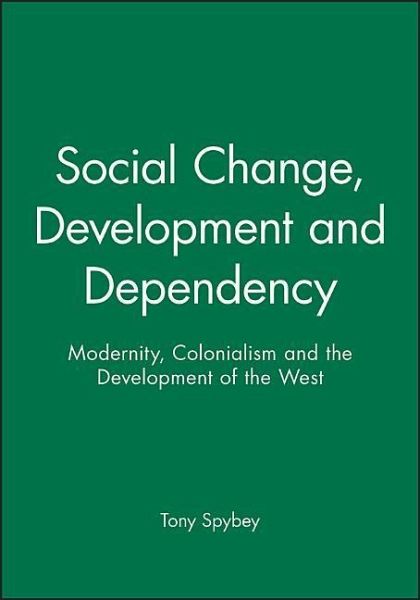
Social Change, Development and Dependency
Modernity, Colonialism and the Development of the West
Versandkostenfrei!
Versandfertig in über 4 Wochen
37,99 €
inkl. MwSt.

PAYBACK Punkte
19 °P sammeln!
This book takes the study of development and social change out of the confines of the Modernization Theory - Dependency Theory debate. The author examines social change against a background of the rise of the West and the global spread of its institutions. Spybey analyzes the development of the nation-state system in the modern world, emphasizing its Western origins. He also traces out the emergence of colonialism, the capitalist world-economy and Western dominance over other parts of the world. The author goes on to examine these developments after the Second World War, against the background...
This book takes the study of development and social change out of the confines of the Modernization Theory - Dependency Theory debate. The author examines social change against a background of the rise of the West and the global spread of its institutions. Spybey analyzes the development of the nation-state system in the modern world, emphasizing its Western origins. He also traces out the emergence of colonialism, the capitalist world-economy and Western dominance over other parts of the world. The author goes on to examine these developments after the Second World War, against the background of the Cold War and the end of European colonialism, the reaffirmed of the existence of nation-state system by new global institutions, global military order and capitalist world economy. The First, Second and Third Worlds are placed in their social, political and economic contexts and traced through to the post-Bretton Woods period of oil crises, global recession and new international division of labour.














